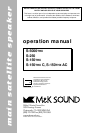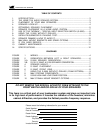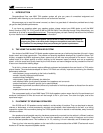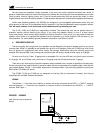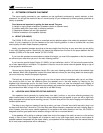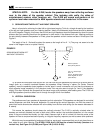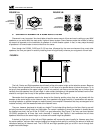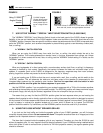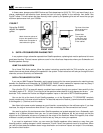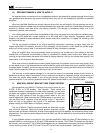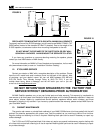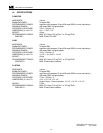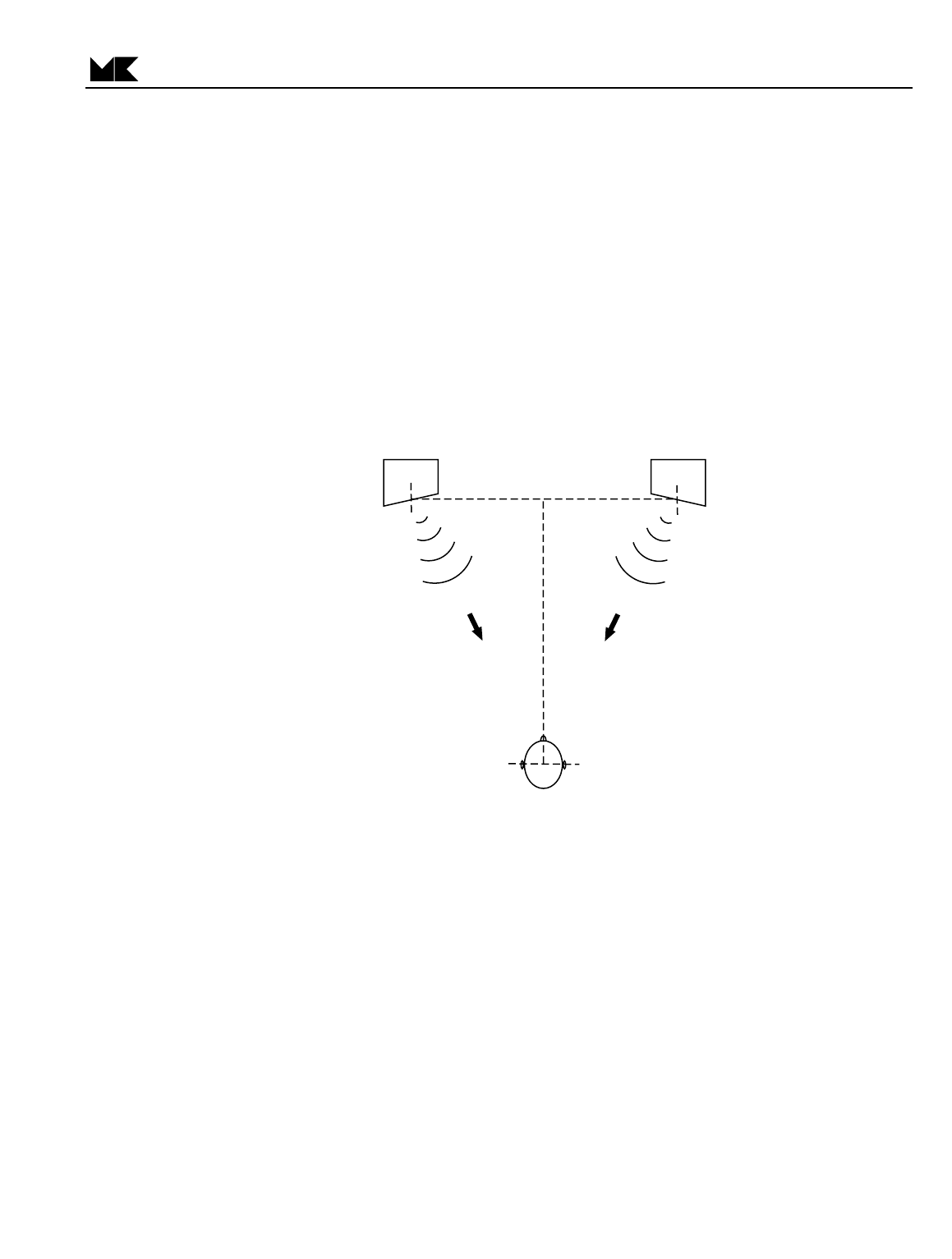
SPECIAL NOTE: For the S-250, locate the speakers away from reflecting surfaces
near to the sides of the speaker cabinet. This includes side walls, the sides of
entertainment centers, other furniture, etc. The S-250 will sound and perform at its
optimum level when mounted to M&K speaker stands and located out in the room.
C. SEPARATION BETWEEN LEFT AND RIGHT SPEAKERS
Here is a formula for achieving the ideal left to right stereo imaging. Think of a triangle formed by the locations
of the left and right speakers and your listening position. Ideally, the subtended angle formed should be between
45 and 50 degrees. Roughly, this means that the left and right speakers should be separated by about the same
distance that you are sitting back from the speakers. In other words, if the distance from your listening position to
the point directly between the speakers is 10 feet, place the speakers so their centers are about 10 feet apart. See
Figure 2.
The length of line A - B should be about the same as the length of line X - Y. (They may not seem to be the
same in this diagram due to an optical illusion).
Try to follow the formula as close as you can.You can fine tune the placement by listening to a source with an
image (such as a vocalist) centered between the speakers. When listening in stereo (no Center Channel
speaker), move the speakers closer together or farther apart in small increments until you hear the sharpest an
most cohesive image, especially in the phantom center. You may also want to angle (or "toe-in") the speakers
slightly. This often improves the sharpness of the stereo image, and provides a wider seating area. The S-150 Left
and Right speakers provide a default toe-in through the angle of their front baffles.
D. VERTICAL ORIENTATION
The performance of your speakers is dependent on their orientation.THX speakers are designed for controlled
vertical dispersion and wide horizontal dispersion. By controlling the vertical dispersion, we limit the amount of
sound that would otherwise be reflected with a time delay from the floor and ceiling (for the reasons discussed in
B. above).
This means the speakers should always be vertically oriented. The S-150 is vertically oriented when its
tweeters are vertically stacked (not next to each other). When vertical, the controlled dispersion is in the correct
plane. If they are oriented horizontally (on their sides), listeners right or left of a direct line from the center of the
speaker will hear a compromised sound quality, an irregular frequency response, as well as some other problems.
While this may be acceptable for background listening, we strongly recommend that you do not place them on
their sides for any other listening. The S-5000, S-250 and S-150 must be oriented vertically (tweeters in a
vertical line). See Figure 3-A (S-5000) and Figure 3-B (S-150 & S-250).
MAIN SATELLITE SPEAKER
X
Y
A
B
Aim the speakers
at the primary listener.
Line X - Y should equal
line A - B.
(Line A - B appears longer
in this diagram due to an
optical illusion).
FIGURE 2
SEPARATION BETWEEN LEFT
AND RIGHT SPEAKERS
6



